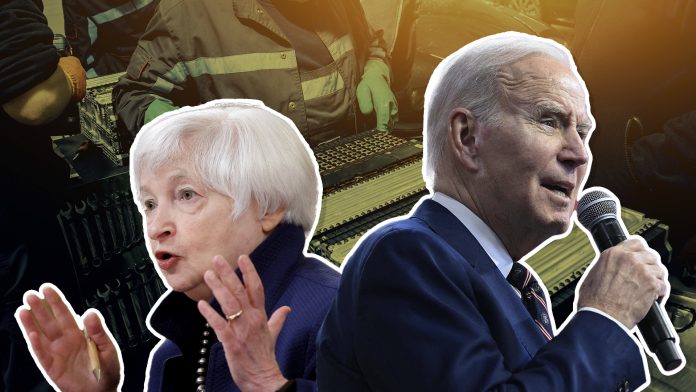The Biden Administration’s efforts to arrange free trade agreements with allied nations have come under fire from U.S. lawmakers on both sides of the political aisle.
The agreements are meant to allow U.S. allies to qualify for electric vehicle tax credits in the Inflation Reduction Act. Soon after congress approved the bill, politicians in Japan, Europe and the UK criticized the legislation’s domestic sourcing requirements, which they argued would impact global automotive sales and cause OEMs to re-locate to the U.S. However, the IRA contains a loophole allowing foreign free trade partners to circumvent these rules.
Although there are 20 countries in a free trade relationship with the U.S., the list does not include EU member states, Japan or the UK. With blessings from Secretary Yellen of the Treasury Department, Biden revealed plans to meet with European Commission President Ursula von der Leyen, to negotiate a deal which allow vehicles produced in the EU to qualify for the credits.
However, both Democrat and Republican politicians have taken issue with both Biden and Yellen for orchestrating the free trade agreements without congressional approval. According to the Congressional Research Service, congress has the right to “levy tariffs and regulate foreign commerce.” While the executive branch retains some authority, the house and senate are intended to take “active role[s] in formulating trade policy and shaping outcomes.”
Rep. Linda Sanchez, D-California, criticized the free trade agreements for the “unprecedented way [they] were written.” She went on to argue, “we continue to upend the separation of powers on trade authorities.” Rep. Brian Fitzpatrick, R-Pennsylvania, also called to attention the imbalance of tariffs between the U.S. and its allies, with some charging as much as a 10% tax on vehicles imported from America. Although Yellen defended the move, it remains to be seen whether further action will be taken to prevent partnerships from forming without approval.



